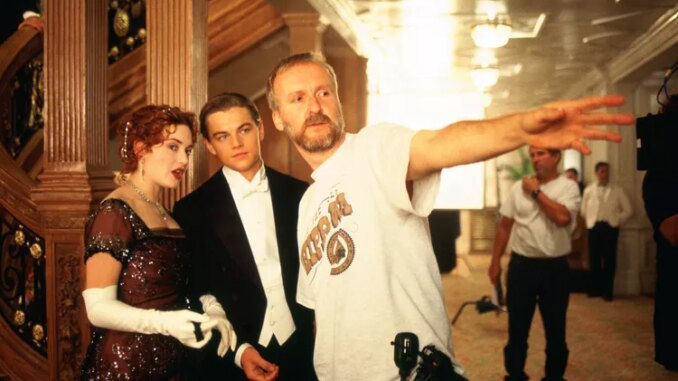
The calendar flips, seasons turn, and empires rise and fall, yet some things remain stubbornly, almost comically, constant. Among them, it seems, is the undying celebrity fascination with James Cameron’s 1997 epic, Titanic. Twenty-six years have slipped into the icy depths of time since Jack Dawson first declared himself "King of the World," and still, from late-night couches to red carpet interviews, the conversation about Rose’s floating door persists. It’s a phenomenon that transcends mere cinematic nostalgia; it’s a revealing microcosm of celebrity culture, our collective memory, and the strange, enduring power of a story that simply refuses to sink.
When Titanic first hit theaters, it wasn't just a film; it was a cultural event, a global phenomenon that swept up audiences in a tidal wave of romance, disaster, and Leonardo DiCaprio’s floppy hair. For many of today’s most prominent celebrities, it arrived during their formative years – an era of Blockbuster rentals and dial-up internet, long before TikTok dances and carefully curated Instagram feeds. For them, Titanic isn't just a movie; it's a time capsule. It represents a simpler time, perhaps even before the relentless glare of their own superstardom. To discuss it is to tap into a shared, almost primal memory of collective awe, a universal touchstone that instantly bridges the gap between their glittering reality and the audience’s more grounded past.
The most persistent, and arguably most absurd, facet of this enduring fascination is the infamous "door debate." Decades have passed, scientific tests have been conducted, and director James Cameron himself has weighed in with exasperated explanations, yet the question persists: Could Jack have fit on that piece of flotsam with Rose? Imagine the scene: a visibly weary Kate Winslet, promoting her latest prestige drama, is inevitably cornered on a talk show. The host, with a mischievous glint in their eye, slides in the question, perhaps even pulling out a diagram. Winslet, with the patience of a saint who has been asked this question approximately 17 million times, will offer a polite, rehearsed chuckle, perhaps a fond sigh about her co-star, and gently reiterate the narrative necessity of Jack's demise. Across town, Leonardo DiCaprio, notoriously private, will find himself playfully badgered by an interviewer who knows that a simple "No comment" or a shrug from him will fuel a thousand headlines. This isn't just idle chatter; it’s an interactive, perpetual fan theory played out on the global stage, with the original cast members as reluctant, perpetually good-humored participants.
But the Titanic discussion isn't solely about the buoyancy of a wooden panel. It also serves as a surprisingly safe and accessible vehicle for celebrities to discuss deeper themes without veering into overly heavy territory. The film explores class divisions, true love versus societal expectations, sacrifice, and the raw instinct for survival. When a celebrity waxes poetic about the tragic romance or the courage of the third-class passengers, they're not just reminiscing about a movie; they're connecting with universal human experiences, albeit through the lens of a blockbuster. It allows them to appear thoughtful and empathetic, to align themselves with the grand, timeless narratives that resonate with ordinary people, without having to expose too much of their own complex inner worlds. It's a high-brow conversation starter wrapped in a comforting, familiar package.
Ultimately, the phenomenon speaks to the very nature of celebrity in the 21st century: the constant need for content, for relatable soundbites, for evergreen topics that will generate clicks and engagement. Titanic is the ultimate low-hanging fruit, a guaranteed crowd-pleaser that requires no explanation. When a late-night host needs a chuckle, when a magazine editor needs a quick quote, when a podcast host needs a relatable anecdote, Titanic is always there, a cinematic security blanket. It’s a self-perpetuating cycle: celebrities talk about it because they’re asked; they’re asked because they will talk about it, and because the public, ever-fascinated by the intersection of fame and beloved pop culture, keeps listening.
So, as Titanic drifts further into the past, its cinematic wreckage settling deeper into the ocean of history, its hold on the celebrity imagination remains surprisingly buoyant. It’s a testament to the film’s undeniable impact, a fascinating case study in collective nostalgia, and a wry commentary on the insatiable appetite of the celebrity-media complex. And somewhere, right now, on a gleaming talk show set or a bustling red carpet, you can almost guarantee someone is asking, or being asked, about that damn door. And we, the audience, will, as always, listen.